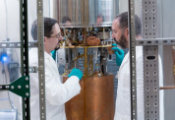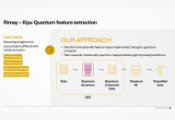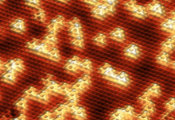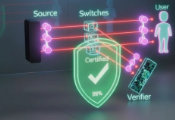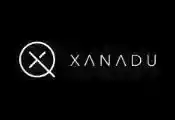Xanadu, the University of Toronto and the National Research Council of Canada to Collaborate on Developing Quantum Algorithms for Lithium-Ion Battery Simulations
TORONTO, June 10, 2025 -- Xanadu, a world leader in photonic quantum computing, and the University of Toronto, have received funding to collaborate with the National Research Council of Canada (NRC) on an ambitious new research project as part of the NRC’s Applied Quantum Computing Challenge program. This collaboration aims to develop new quantum algorithms for quantum dynamics and apply them to simulations of new, faster, and more efficient lithium-ion batteries.
As the world continues its transition towards renewable energy and electric vehicles, the demand for better battery technology is surging. This includes the need for batteries with higher energy densities, longer lifetimes, faster charging, and lower costs. However, designing new cathodes and electrolyte materials for these batteries requires highly accurate simulations of the materials and associated chemical reaction mechanisms, such as delithiation during the charging cycle and formation of the solid-electrolyte interphase.
Quantum computing offers a potential solution to this problem by leveraging direct simulation of the underlying quantum dynamics to better capture interactions between electronic and nuclear degrees of freedom. This is also fertile ground for other innovations and breakthroughs, for instance: new calculations of molecule and material properties, novel models of light-matter interactions, and direct simulations of spectroscopy techniques to better understand the dynamics of quantum systems.
Each of the collaborators will contribute to the research through their respective expertise. University of Toronto Professor Nathan Wiebe from the Department of Computer Science, and University of Toronto Scarborough Professor Artur Izmaylov from the Department of Physical & Environmental Sciences, will lead groups that will prioritize theoretical contributions to quantum algorithms. Dr. Juan Miguel Arrazola’s team from Xanadu will place a larger focus on battery simulation application, in collaboration with the NRC’s Battery Materials Innovation team led by Dr. Abu-Lebdeh.
"Prior work on quantum computing for batteries has focused on ground-state energy estimation. This project aims to develop breakthrough algorithms based on quantum dynamics, which are better suited for quantum computers and more challenging for classical methods. We are enthusiastic about demonstrating how quantum computers can impact the discovery of next-generation batteries," said Juan Miguel Arrazola, Head of Algorithms at Xanadu.
This partnership between the Government of Canada, private industry and academia aims to demonstrate that quantum dynamics simulations can unravel undiscovered applications of quantum computing, in particular for battery simulations. Discovering algorithms to simulate quantum dynamics as a native application of quantum computers–which are strong candidates for outperforming classical methods–represents a valuable step forward in Xanadu’s mission to build quantum computers that are useful and available to people everywhere.
Through its Challenge programs, the NRC is leveraging its vast research expertise and facilities to partner with private and public sector, academic and other research organizations in Canada and internationally to advance transformative, high-risk, high-reward research that addresses Canadian priorities.

